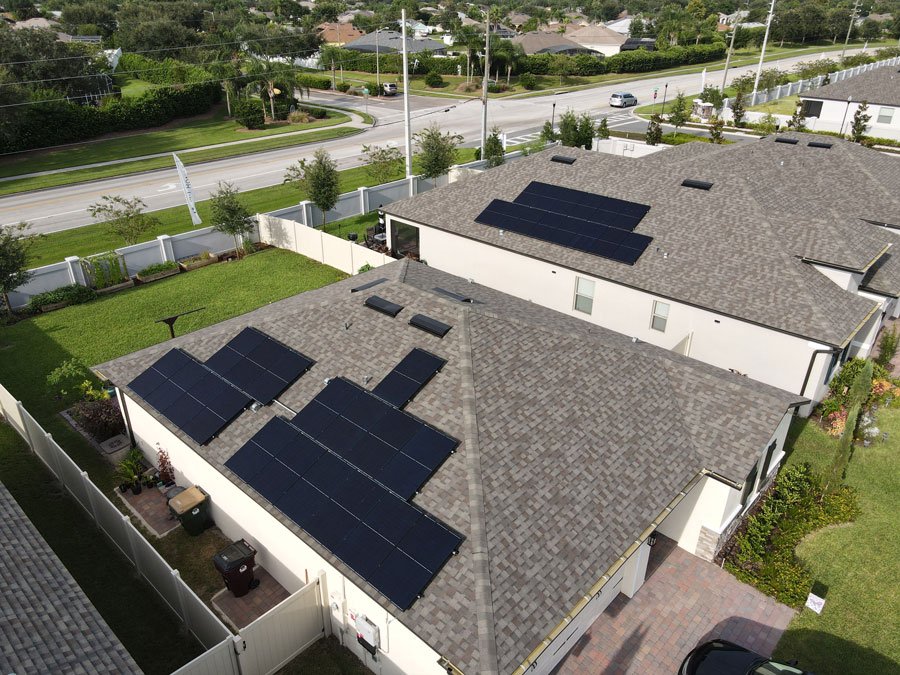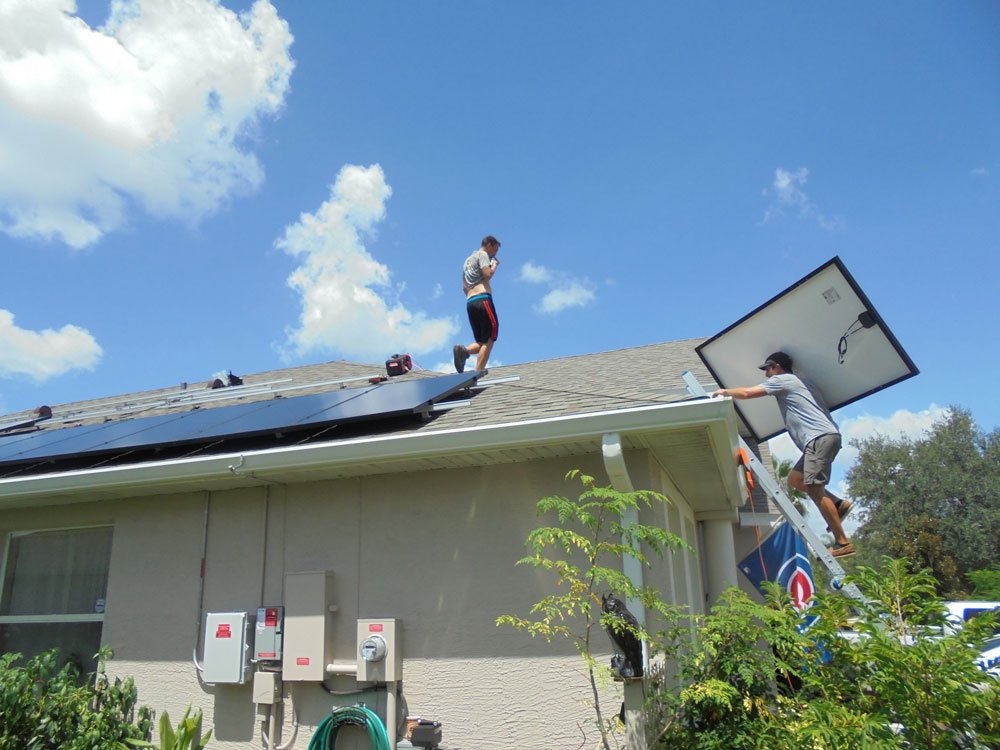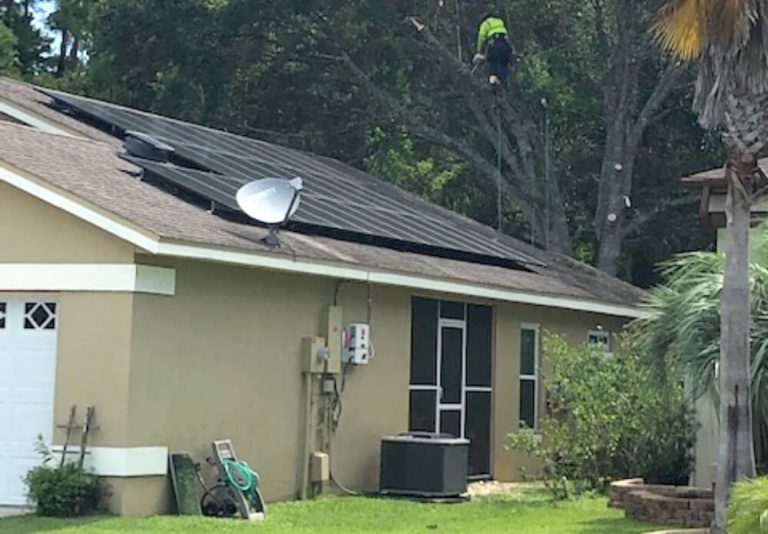How to get the most out of your solar project
There are a lot of solar companies out there today. But the majority of them conduct business with the same business model. And their business model isn’t necessarily the best solution for your problem. Today, I’m going to introduce you to a mathematical equation. C = P.
The C stands for consumption. The P, for production. Most homeowner’s goal in going solar is to produce 100% of the power they use which therefore eliminates their electric bill. if you are going to be paying a bill, you may as well be paying a finance installment for something you own as opposed to something you will never own, correct?
So, let’s return to the simple math problem. There’s far more math involved in doing a solar energy project correctly than most sales people can even conceptualize. This is a cookie-cutter approach that many companies are using. Your consumption equals X and we will design a system that will produce X.
This completely misses the opportunity for even greater savings.
Let’s just say for example, your electric consumption warrants installing 40 panels. I.e. you need 40 panels in order to produce enough power to eliminate your electric bill. Your consumption has now been covered by your production. C=P. In most cases, this is where the “analysis” stops. Solar companies sell solar. That’s what they want to sell you. As much as they can. But here’s what few people know, and even fewer will tell you: Consumption is not a constant. Consumption can increase and decrease. Consumption, and here is the major point, can in most cases, be more cost effectively addressed than solar production alone.
A good solar consultant that has your best interest at your heart doesn’t stop with matching solar production to your consumption. A good solar consultant will look for ways to reduce your consumption more cost-effectively then slamming solar panels on your roof.

So, let’s get back to our example. You need 40 solar panels to cover your consumption. But what about your air conditioner? Maybe it’s like 15 years old? Maybe it’s the reason that your consumption is as high as it is. In most cases, it is more cost-effective to replace an air conditioner then to buy solar panels to cover the extra consumption. Just think, if a new air conditioner can save you 25% of your power bill, that means that now you only need 30 panels. A new air conditioner may be cheaper than those 10 extra panels. The same thing goes for energy-efficient water heaters, solar attic fans, extra insulation in the attic, pool pumps, lighting, etc. again, in almost all cases, these projects cost less than the cost of a solar panel used to cover the increased power consumption that would be necessary if these projects were not considered.
There are a few companies out there that will do a thorough energy analysis. Most homeowners are irritated by this approach because they booked an appointment for Solar and the guy is running around the house with a clipboard telling them everything that’s going on/using power other than talking about Solar. But think about what I said?
In virtually all cases, doing a few energy-efficiency projects as part of your solar project is almost always more cost effective than solar alone.
A good solar consultant will look for opportunities for those additional savings.
But here’s the worst part: Let’s say you went ahead with those 40 panels? Two years later, your air conditioner dies. Since it’s 15 years old anything you replace it with is going to be considerably more energy efficient. Maybe now, even with a cheap replacement, it reduces your consumption by 15 to 20%. What happens to our simple equation?
Now C<P. if C is less than P, this is not a good thing. Net metering means the power company will reimburse you at retail for the power you are producing-that’s how you get to a zero electric bill. But now you are producing 20% more than you are consuming. You just wasted a bunch of money. The power company, if they can be talked into reimbursing you for all of your excess power production will only be at cost. If they charge you $.14 a kilowatt hour, they might, again a big “might” pay you. 04 a kilowatt hour. That’s wholesale price. That’s what they pay. They credit the account at retail, but if they are going to pay, it will at best be wholesale. And again, they’re not in the business of stroking checks to their residential customers. The same thing happens when you replace your water heater down the road, buy more energy efficient appliances, etc. etc. Can you see why this is not in your best interest? If you purchase a 100% solar solution for what you need today with no considerations for efficiencies and you are stuck with overproduction down the road that you can’t get paid for, you lost out on an even greater opportunity to save.
I have many customers that due to the fact they use a lot of hot water as they have four kids, three of which are teenagers and take showers for half an hour save upwards of $5000 by replacing the water heater as opposed to buying solar panels to cover it. What happens when the kids move out? Overproduction! (Unless you properly attacked the “consumption” in the analysis of properly sizing the production of system).
As you may be aware, I am a retired fraud examiner. I’ve completed hundreds of investigations. I use an extremely methodical and analytical approach. I bring these same skills into your home. I’m doing an investigation. Who can I find that is using more than their share of power? Who can I replace more cost-effectively? What is going on in your life today? Will it likely change in a few years? What would I do if this was the analysis in my own home?
Yes. This is the difference between a true customer-centric approach to service and the “cookie cutter, slam a bunch of panels on your roof and hope you’re happy approach.”
I sincerely hope this helped you navigate some of the complexities of a solar project.
By the way, I provide all this analysis in a FREE consultation. That being said, feel FREE to hit me up. The 26% tax credit expires this year. Take advantage of this or miss out?
Wishing you all peace, safety, and wellness.
Sincerely,
Joe Nash
Founder, Joe Does Solar & LMNdeavors Hydroponic and Solar Solutions.


